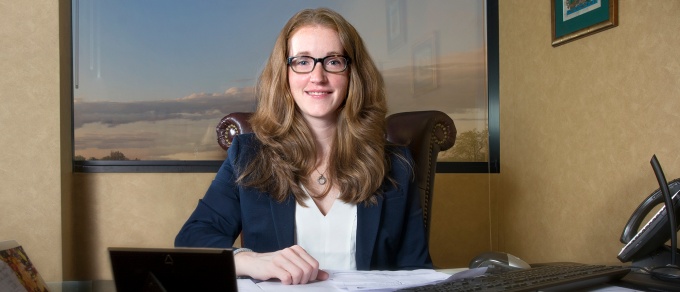Message from the Program Director

Considering applying to our program? We are known for our unparalleled training opportunities, compassionate patient care and dedicated faculty members — like Teresa L. Danforth, MD, program director.
As a urology resident, you’ll find that our program will help you master the skills needed to provide top-quality, knowledgeable care to patients with a broad range of diseases and conditions.
You might be asking: “How can I ensure I receive the appropriate training that will enable me to be a successful urologist?”
Of course you’re asking this question; selecting a residency is one of the most important decisions of your life.
I can help you understand why our program will set you on a path to a productive career in urology.
Firsthand Knowledge About Our Program
I completed my medical school training and my urology residency at the Jacobs School of Medicine and Biomedical Sciences. After completing a fellowship at the University of Southern California, I returned to Buffalo as a faculty member and as the assistant program director for the urology residency program. I became the full-time program director after one year. I also practice with UBMD Urology.
With this background, I have firsthand knowledge that our program provides robust and comprehensive training, ensuring that our graduates have acquired the knowledge and skills to enter into autonomous practice in urology.
When I returned to Buffalo, my goal was to help develop this program to its full potential, giving future residents the best education there is to offer.
Experience a Variety of Areas of Urology
It is our philosophy that an extensive grounding in the cognitive and psychomotor skills of urology is essential for all residents irrespective of whether graduates seek to undertake fellowship training in basic research (for those anticipating a future academic career), plan to pursue clinical fellowship training or seek to enter clinical practice directly after residency.
Through our carefully planned curriculum, our program provides in-depth experience in a variety of areas of urology.
Our rotations and training sites enable you to experience urologic domains such as pediatric urology, urological oncology, urodynamics, traumas, renal transplantation and male and female urology.
An Emphasis on Surgical Skills
Expect to gain valuable surgical experience in our program.
Through five years of increasing duties and responsibilities, we provide training in traditional “open” surgery, laparoscopy, endoscopy and robotics, ensuring that graduates are fully prepared for independent practice.
Our residents report that training in our surgical skills lab — and using a surgical simulator — has helped them quickly develop competence with surgical procedures.
Key Conferences; Significant Research Experience
Outside of the operating room, our active academic calendar provides a multidisciplinary approach to urologic training through conferences and didactics on the following topics: multidisciplinary tumor board, research, grand rounds, morbidity and mortality, journal cub, radiology review, surgical skills and basic sciences.
Our program has a strong research component that provides you with opportunities to embark on projects matched to your interests and goals. We include ample time for research in each year of training. As a resident in our program, you’ll have plenty of opportunities to undertake translational, clinical or basic science projects.
Supportive Faculty
If you are looking for a program that will prepare you for the successful practice of urology, take a closer look at the exceptional training experiences we have to offer.
Also, take a moment to acquaint yourself with our faculty members, who support our residents every step of the way.
We invite you to come along with us to begin your journey into urology!
Best regards,
Teresa L. Danforth, MD, program director